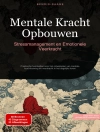This book draws together research on posthumanism and studies of kinship to elaborate an account of western human kinship practices. Studies of kinship have increasingly sought to critique the normative assumptions that often underpin how caring relationships between humans are understood. The categorisation of ‘human’ and ‘kinship’ is brought into question and this book examines who might be excluded through adherence to accepted categories and how a critical lens may broaden our understanding of caring relationships. Bringing together a diverse array of analytic foci and theoretical lenses,
Critical Kinship Studies opens up new avenues for understanding what it means to be in relationships with others, and in so doing challenges the human exceptionalism that has often limited how we think about family, loss, love and subjectivity.
Tabela de Conteúdo
Chapter 1. Introduction.- Chapter 2. Objects of Critique.- Chapter 3. Tools of Critique.- Chapter 4. Reflecting (von) Nature: Cross Species Kinship.- Chapter 5. Donor Connections.- Chapter 6. Kinship and Loss.- Chapter 7. Motherhood and Recognition.- Chapter 8. Kinship in Institutional Contexts.- Chapter 9. Conclusions.
Sobre o autor
Damien W. Riggs is Associate Professor in social work at Flinders University, Australia and an Australian Research Council Future Fellow. He is the author of almost 200 publications in the fields of gender and sexuality, family, and mental health, in addition to working as a Lacanian psychotherapist in private practice where he specializes in working with transgender young people.
Elizabeth Peel is a Professor of Communication and Social Interaction in the Department of Social Sciences at Loughborough University, UK and a British Academy Mid-Career Fellow. She is author of over 100 publications in critical social psychology, sexuality and health. She is a Fellow of the British Psychological Society and Chair of its Psychology of Sexualities Section.












